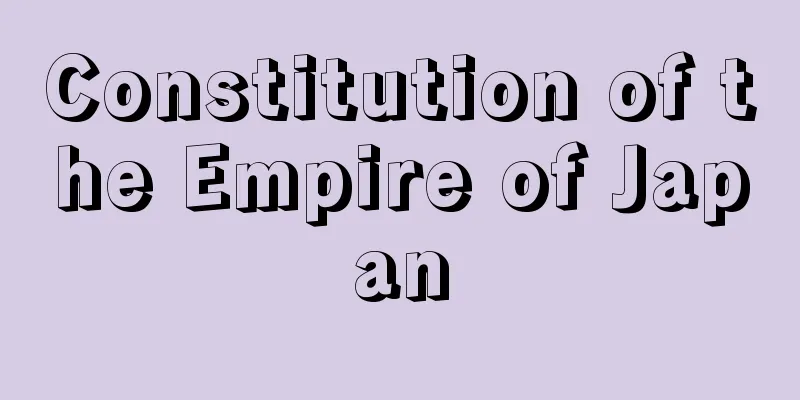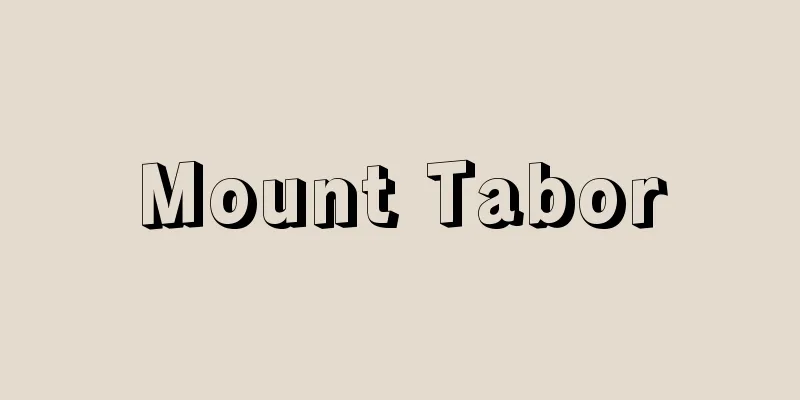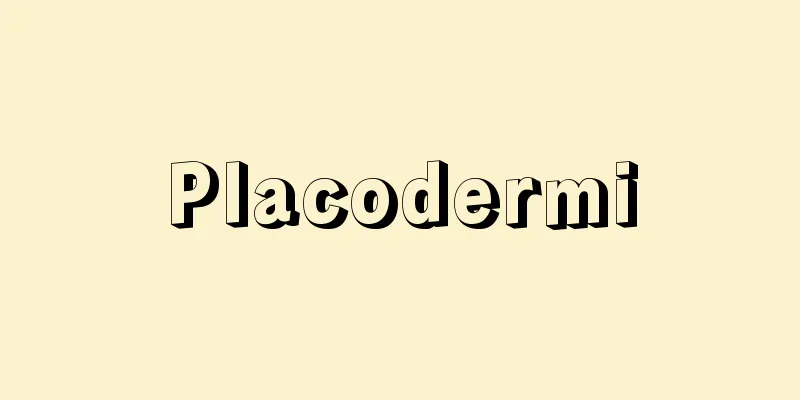|
Enacted on November 29, 1890
Statement: I, the Emperor, respectfully and reverently call upon the divine spirits of my Imperial Ancestors to declare that I, the Emperor, will follow the boundless grandeur of the heavens and earth, inherit the divine throne, maintain the old order, and never look to lose it. I will follow the progress of the world and the development of human culture, clarify the teachings of my Imperial Ancestors, establish a constitution, and show the articles, so that within it my descendants will be led, and outside of that I will widen the way for my subjects to support me and have them obey it forever, further solidify the foundation of my nation, and promote the happiness of the people of the eight islands. We have hereby enacted the Imperial House Law and the Constitution, and all of this is nothing other than an exposition of the grand model of governance which shall be handed down to the descendants of our Imperial Ancestors. However, the fact that we have been able to carry this out together with the times is truly due to our reliance on the mighty spirits of our Imperial Ancestors and our Imperial Will. Hereby, I, the Emperor, pray for the divine support of our Imperial Ancestors and our Imperial Will, and swear that I will lead my subjects, both now and in the future, in carrying out this Charter without fail. Please consider this in detail. Imperial Rescript on the Promulgation of the Constitution With the prosperity of our nation and the happiness of our subjects as our central glory, I proclaim this immutable constitution to my present and future subjects by the sovereign authority handed down from our ancestors. Our ancestors, relying on the cooperation and support of our subjects' ancestors, founded our empire and will continue to do so forever. This will be the power of our sacred ancestors and the loyalty and valor of our subjects that will protect our nation. By dying for our beloved Prince, we have bequeathed to him the glorious legacy of our nation's history. We, his subjects, recall that we are the descendants of his loyal subjects, and we have no doubt that we are able to bear this burden, honoring my wishes, encouraging my actions, and cooperating harmoniously with one another in the hope of further promoting the glory of our Empire both at home and abroad and solidifying the legacy of our ancestors forever.
I have inherited the legacy of my ancestors and ascended to the Imperial Throne of the unbroken line. I remember that my beloved subjects are the very subjects whom I have bestowed the blessings and mercy of my ancestors. I wish to promote their welfare and to develop their virtues and abilities. I also hope to support the progress of our nation together with their support. In this regard, I will carry out the Imperial decree of October 12, 1881. Hereby, I have enacted this great Constitution, indicating my direction of leadership, and shall cause my successors, my subjects, and their descendants to know how to follow it forever. The supreme power of governing the state has been inherited by me from my ancestors and will be handed down to my descendants. I and my descendants must in the future act in accordance with the provisions of this Constitution. I will ensure the safety of the rights and property of my subjects. I declare that we shall treasure and protect the property of all nations and territories, and shall complete their enjoyment within the limits of this Constitution and laws. The Imperial Diet shall convene in the 23rd year of Meiji, and this Constitution shall take effect as of the opening of the Diet. Should an opportunity arise in the future for the necessity of amending any provision of this Constitution, I and my successive descendants shall exercise the right of initiative and submit it to the Diet, which shall pass it in accordance with the requirements set forth in this Constitution, and my descendants and subjects shall never attempt to alter it. My Ministers at Court shall be responsible for implementing this Constitution on my behalf, and my subjects, present and future, shall be forever bound to obey this Constitution. Imperial Seal February 11, 1889 Prime Minister Count Kuroda Kiyotaka President of the Privy Council Count Ito Hirobumi Minister of Foreign Affairs Count Okuma Shigenobu Minister of the Navy Count Saigo Tsugumichi Minister of Agriculture and Commerce Count Inoue Kaoru Minister of Justice Count Yamada Akiyoshi Minister of Finance and Home Affairs Count Matsukata Masayoshi Minister of the Army Count Oyama Iwao Minister of Education Viscount Mori Arinori Minister of Communications Viscount Enomoto Takeaki
Constitution of the Empire of Japan Chapter I The Emperor
Article 1 The Empire of Japan shall be ruled by an unbroken line of Emperors.
Article 2 The Imperial Throne shall be succeeded by the male descendants of the Emperor in accordance with the Imperial House Law.
Article 3 The Emperor is sacred and inviolable.
Article 4 The Emperor is the head of state and wields sovereign power, which he exercises in accordance with the provisions of this Constitution.
Article 5. The Emperor exercises legislative power with the consent of the Imperial Diet.
Article 6 The Emperor shall approve laws and order their promulgation and execution.
Article 7. The Emperor shall convene the Imperial Diet, order the opening, closing and proroguing of it, and the dissolution of the House of Representatives.
Article 8. In the event of an emergency requiring the maintenance of public safety or the averting of disasters, the Emperor may, in the event of the recess of the Imperial Diet, issue an Imperial Ordinance which shall take the place of a law. [2] Such an Imperial Ordinance shall be submitted to the Imperial Diet at its next session; and if the Diet does not approve it, the Government shall proclaim it to have no effect for the future.
Article 9. The Emperor shall issue or cause to be issued such orders as are necessary for the execution of the law, for the maintenance of public peace and order, and for the promotion of the happiness of his subjects, but shall not by his orders alter the law.
Article 10. The Emperor shall determine the system of administration for each administrative department, and the salaries of civil and military officials, and shall appoint and dismiss such officials. However, in cases where special provisions are provided for in this Constitution or other laws, the provisions of those laws shall apply.
Article 11 The Emperor is the Supreme Commander of the Army and Navy.
Article 12 The Emperor establishes the organization of the army and navy and determines the amount of standing soldiers.
Article 13 The Emperor declares war, negotiates peace, and concludes various treaties.
Article 14. The Emperor shall declare martial law. [2] The requirements and effects of martial law shall be determined by law.
Article 15. The Emperor shall bestow titles, medals, and other honors.
Article 16 The Emperor shall order amnesty, commutation of sentences, and restoration of rights.
Article 17. The appointment of a regent shall be in accordance with the provisions of the Imperial House Law. [2] The regent shall exercise supreme power in the name of the Emperor. Chapter II . Rights and Obligations of Subjects
Article 18 The qualifications for being a Japanese subject shall be as provided by law.
Article 19. Japanese subjects shall be equally entitled to civil and military appointments and to other public duties in accordance with the qualifications prescribed by law ordinance.
Article 20. Japanese subjects are obliged to perform military service in accordance with the provisions of law.
Article 21. Japanese subjects have the duty to pay taxes according to the provisions of law.
Article 22. Japanese subjects shall have freedom of residence and movement, within the limits of law.
Article 23. No Japanese subject shall be arrested, detained, interrogated, or punished except in accordance with law.
Article 24. Japanese subjects shall not be deprived of the right of being tried by judges as provided by law.
Article 25. Except in cases provided by law, no Japanese subject shall have his domicile entered or searched without his consent.
Article 26. Japanese subjects shall not violate the secrecy of foreign correspondence, except in cases provided by law.
Article 27. The right of ownership of Japanese subjects shall not be infringed. [2] Dispositions necessary for the public interest shall be made in accordance with the provisions of law.
Article 28. Japanese subjects shall have freedom of religion in so far as it does not disturb peace and order and does not violate the duties of subjects.
Article 29. Japanese subjects shall, within the limits of law, have the freedom of speech, writing, publishing, assembly, and association.
Article 30. Japanese subjects may make petitions in accordance with the proper courtesy and with such other regulations as may be prescribed.
Article 31. The provisions set forth in this Chapter shall not impede the exercise of the Emperor's prerogative in time of war or national emergency.
Article 32 The provisions set out in this Chapter shall apply to military personnel only insofar as they do not violate the laws, regulations or discipline of the Army and Navy . Chapter III The Imperial Diet
Article 33. The Imperial Diet shall consist of both the House of Peers and the House of Representatives.
Article 34 The House of Peers shall be composed of members of the Imperial Family, members of the nobility, and members appointed by Imperial decree, in accordance with the provisions of the House of Peers Act.
Article 35. The House of Representatives shall be composed of members popularly elected in accordance with the provisions of the Election Law.
Article 36. No person may simultaneously serve as a member of both Houses.
Article 37. All laws must be ratified by the Imperial Diet.
Article 38. Both Houses may decide on bills submitted by the Government, and each may submit its own bills.
Article 39. A bill which has been rejected by either House may not be reintroduced in the same session.
Article 40. Each House may present to the Government its views on laws or other matters, but any bill which it has not adopted may not be submitted again during the same session.
Article 41. The Imperial Diet shall be convened annually.
Article 42. The Imperial Diet shall not be in session for more than three months, but may, if necessary, be extended by Imperial command.
Article 43. In case of emergency, extraordinary sessions may be convoked in addition to ordinary sessions. [2] The duration of extraordinary sessions shall be determined by Imperial command.
Article 44. The opening, closing, extension, and prorogation of the Imperial Diet shall be effected simultaneously by both Houses. [2] When an order is issued for the dissolution of the House of Representatives, the House of Peers shall also be prorogued at the same time.
Article 45. When an order is issued to dissolve the House of Representatives, new members shall be elected by Imperial command and the House shall be convened within five months from the day of dissolution.
Article 46. Neither House can transact business or make decisions unless one-third or more of the total members of each House are present.
Article 47. All matters in both Houses shall be decided by a simple majority. In case of a tie, the presiding officer shall have the deciding vote.
Article 48. The deliberations of both Houses shall be public, except that they may be held in secret at the request of the Government or by resolution of either House.
Article 49. Each House may submit petitions to the Emperor.
Article 50. Both Houses may receive petitions presented by the subjects.
Article 51. Both Houses may prescribe such rules as are necessary for the internal order of their affairs in addition to those provided for in this Constitution and the Houses Law.
Article 52. Members of both Houses shall not be held responsible outside the House for opinions expressed or votes cast in the House. However, if a member himself publicizes his opinions by speech, publication, transcription, or any other means, he shall be dealt with in accordance with the general law.
Article 53. Members of both Houses shall not be arrested during a session without the consent of the House, except for those in the act of committing a criminal offense or an offense related to civil war or foreign terror.
Article 54. Ministers of State and Government Commissioners may attend and speak in each House at any time. Chapter IV. Ministers of State and Privy Counsellors
Article 55. The Ministers of State shall assist the Emperor and be responsible to him. [2] All laws, Imperial Ordinances, and other Imperial Rescripts relating to the affairs of State shall be countersigned by a Minister of State.
Article 56. The Privy Council shall, in accordance with the provisions of the Privy Council Ordinance, deliberate upon important affairs of State, at the request of the Emperor. Chapter V. Judiciary
Article 57. Judicial power shall be exercised in the name of the Emperor through courts in accordance with law. [2] The composition of the courts shall be determined by law.
Article 58. Judges shall be appointed from among those who meet the qualifications prescribed by law. [2] A judge shall not be dismissed from his office except by a criminal sentence or disciplinary punishment. [3] Disciplinary provisions shall be determined by law.
Article 59. Judgments on trials shall be made public. However, when there is a danger to the peace, order or morals, the publicity of a trial may be abrogated by law or by court resolution.
Article 60. The matters within the jurisdiction of the Special Court shall be determined separately by law.
Article 61. Lawsuits alleging that rights have been violated as a result of illegal actions taken by administrative authorities that should be decided by administrative courts as provided for by law shall not be entertained by judicial courts . Chapter 6. Accounting
Article 62. The imposition of new taxes and the change in tax rates shall be determined by law. [2] However, administrative charges and other revenues which are part of the remuneration shall not be subject to the provisions of the preceding paragraph. [3] The raising of national bonds and the conclusion of contracts which shall become the contributions of foreign treasuries, except those fixed in the budget, shall be made only with the consent of the Imperial Diet.
Article 63. Existing taxes shall be collected in the same manner as before, unless further law is passed to amend them.
Article 64. The expenditures of the State shall be appropriated annually through a budget, with the consent of the Imperial Diet. [2] Any expenditures in excess of the items in the budget, or arising outside the scope of the budget, shall require subsequent approval of the Imperial Diet.
Article 65. The Budget shall be submitted to the House of Representatives before the Diet.
Article 66. The expenses of the Imperial Household shall be paid annually from the National Treasury at the present fixed rate, and shall not require the consent of the Imperial Diet, except in the event of a future increase.
Article 67. The Imperial Diet may not abolish or reduce, without the consent of the Government, expenditures established by the Constitutional prerogative and expenditures which result from law or which are a legal obligation of the Government.
Article 68. In case of special necessity, the Government may ask for the support of the Imperial Diet for a continuing expenditure for a period of time to be determined in advance.
Article 69. A contingency fund shall be established to make up for unavoidable budget shortfalls and to meet necessary expenses incurred outside the budget.
Article 70. In case of urgent need to maintain public safety, if the Government is unable to convene the Imperial Diet due to circumstances at home or abroad, it may make the necessary financial arrangements by Imperial Ordinance. [2] In the case provided for in the preceding paragraph, the bill shall be submitted to the Imperial Diet at its next session and its approval shall be sought.
Article 71. When the Imperial Diet does not approve the budget or the budget is not passed, the Government shall implement the budget of the previous year.
Article 72. The final accounts of the State's expenditures and revenues shall be audited and finalized by the Board of Audit, and the Government shall submit them together with its audit report to the Imperial Diet. [2] The organization and powers of the Board of Audit shall be determined by law. Chapter 7. Supplementary Provisions.
Article 73. Should it become necessary in the future to amend any provision of this Constitution, a bill shall be submitted to the Imperial Diet by Imperial command. [2] In such case, neither House may open business unless two-thirds or more of the total members are present. No amendment may be passed unless there is a two-thirds or more majority of the members present.
Article 74. The Imperial House Law may not be amended without the consent of the Imperial Diet.
Article 75. The Constitution and the Imperial House Law may not be altered during the period of the Regent.
Article 76. All existing laws and regulations, whether called laws, regulations, orders, or whatever other title, which are not inconsistent with this Constitution, shall remain in force and effect. [2] All existing contracts and orders relating to the obligations of the Government in respect of expenditures shall be governed by the provisions of Article 67. [Reference item] | Constitution of the Empire of Japan Source: Shogakukan Encyclopedia Nipponica About Encyclopedia Nipponica Information | Legend |





![Kitamoto [city] - Kitamoto](/upload/images/67cb53b0a27a9.webp)



![Henry [IV] - Henry](/upload/images/67cae3e009eaf.webp)
